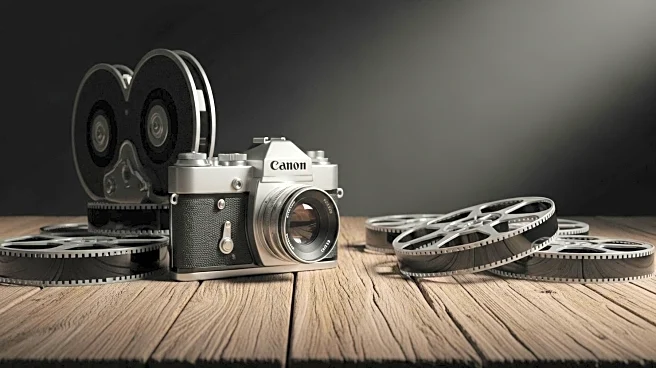What is the story about?
What's Happening?
A new documentary by Andres Veiel delves into the archives of Leni Riefenstahl, the filmmaker known for her work with Adolf Hitler during the Nazi regime. The film examines Riefenstahl's role in creating propaganda films such as Triumph of the Will and Olympia, which were instrumental in shaping the image of the Nazi movement. Despite her controversial past, Riefenstahl was never formally convicted of complicity in Nazi crimes, maintaining her innocence throughout her life. The documentary presents a comprehensive view of her career, including her post-war media confrontations and the extensive archive she left behind, offering insights into her complex legacy.
Why It's Important?
The documentary sheds light on the ethical and historical implications of Riefenstahl's work, highlighting the intersection of art and politics during the Nazi era. It raises questions about the responsibility of artists in propagating harmful ideologies and the lasting impact of their work on society. Riefenstahl's films continue to influence modern aesthetics, prompting discussions about the role of art in shaping cultural narratives. The documentary also explores the challenges of confronting historical figures with controversial legacies, emphasizing the importance of critical examination and accountability in understanding the past.
Beyond the Headlines
The film offers a deeper exploration of Riefenstahl's post-war attempts to distance herself from her Nazi affiliations, revealing her ongoing struggle with public perception and personal identity. It highlights the broader narrative of Germany's reckoning with its past, illustrating the complexities of national memory and the search for accountability. Riefenstahl's story serves as a cautionary tale about the dangers of aestheticizing political ideologies, underscoring the need for vigilance in recognizing and challenging such narratives in contemporary culture.















